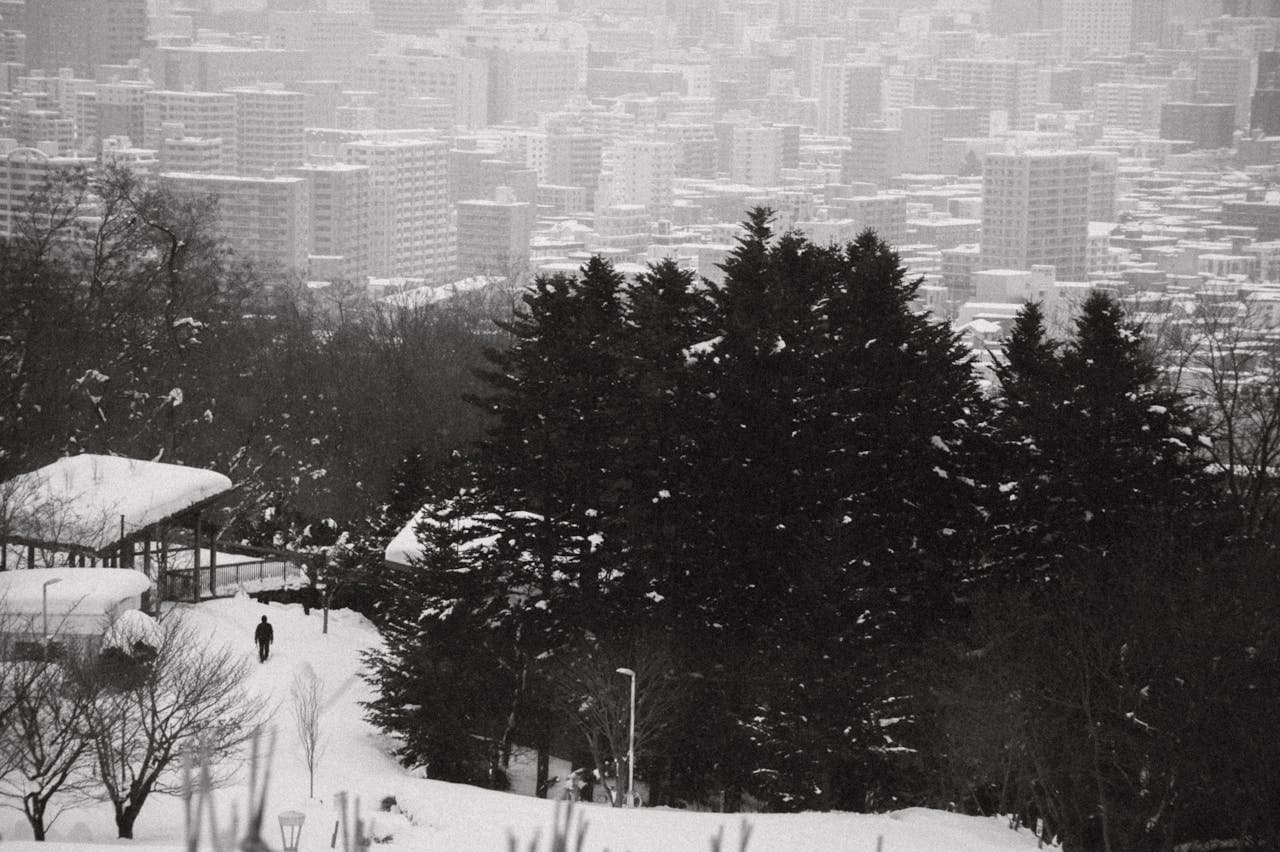Biggest Ski Areas
Niseko United
Kutchan / Annupuri
Four interlinked areas on Mt. Annupuri with extensive off‑piste, gates, and consistent powder. Great for multi‑day trips.
Elevation 1,308 m • Longest run ~5.6 km
Rusutsu
Shimukappu / Iburi
Three peaks, playful tree skiing, and mellow to advanced terrain with excellent grooming and lift network.
3 mountains • ~42 km of runs
Kiroro
Akaigawa
Deep coastal snowfall, protected bowls, and quick access to backcountry. Less crowded than the headliners.
Peak 1,180 m • Steep bowls
Furano
Central Hokkaidō
Cold, interior snow and long groomers with race heritage. Family‑friendly with sidecountry pockets.
Longest run ~4 km • Views of Tokachi
Tomamu
Shimukappu
Modern resort famous for the Ice Village and cloud‑sea terrace. Nicely spaced tree runs and fast lifts.
Gondola + high‑speed quads
Asahikawa Area
Asahikawa base
Use the city as a hub for Kamui Ski Links (fun trees), Kurodake (steep), and Asahidake (ropeway to powder fields).
Best for storm chasing & variety
Sapporo Snow Festival (さっぽろ雪まつり)
When
Early February each year. Large snow/ice sculptures across Odori Park, Susukino, and Tsudome sites.
What to Expect
Night illuminations, food stalls, snow slides, and international carving contests—bundle up and stroll the venues.
Tips
Book hotels early; use underground walkways to cut wind chill; weekdays are quieter than weekends.
Winter Fuel: What to Eat
Soup Curry
Sapporo specialty—aromatic broth loaded with vegetables and your choice of meat. Perfect après‑ski warmth.
Sapporo Ramen
Rich miso base, corn, butter—ideal on a cold night. Explore the Ramen Yokocho alley near Susukino.
Seafood Don & Crab
Otaru and Sapporo markets serve fresh uni, ikura, and famed Hokkaidō snow/king crab.
Jingisukan
Grilled lamb on a dome pan—local classic. Many beer halls offer all‑you‑can‑eat sets.
Dairy Sweets
Soft‑serve, cheesecakes, and Shiroi Koibito cookies—Hokkaidō milk shines in desserts.
Getting There & Around
Fly to New Chitose (CTS)
Most visitors fly into CTS (south of Sapporo). Winter buses run direct to Niseko, Rusutsu, Kiroro, and Tomamu.
Shinkansen + Limited Express
From Tokyo: Hokkaidō Shinkansen to Shin‑Hakodate‑Hokuto, then Limited Express Hokuto to Sapporo (~7.5–8.5 h).
Resort Buses
Frequent winter coaches from CTS/Sapporo to major resorts. Book ahead in peak periods (Dec–Feb).
Ferries from Honshū
Overnight routes connect to Tomakomai or Otaru (e.g., from Ōarai, Niigata, Sendai, Nagoya). Drive or walk‑on options.
Tip: For resort transfers, compare dedicated winter buses and rental cars. Buses are stress‑free in storms; cars offer flexibility for chasing fresh snow.
What to Look Out For
Snowy Roads & Black Ice
Expect compact snow, whiteouts, and hidden ice (especially at intersections). Allow extra time and increase following distance.
Winter‑Ready Car
Rentals come with studless winter tires; request 4WD. Clear roof/hood of snow, carry scraper, and keep fuel topped up.
Cold Temps
Interior can hit −20 °C. Layer up, protect batteries, and check wind chill for summit rides and ropeways.
Avalanche & Tree Wells
Powder + trees = hazards. Check local reports, respect closures/gates, carry gear with partners, and mind tree wells.
Always check local weather, road conditions, and avalanche info before heading out. Obey resort gate and rope policies.
